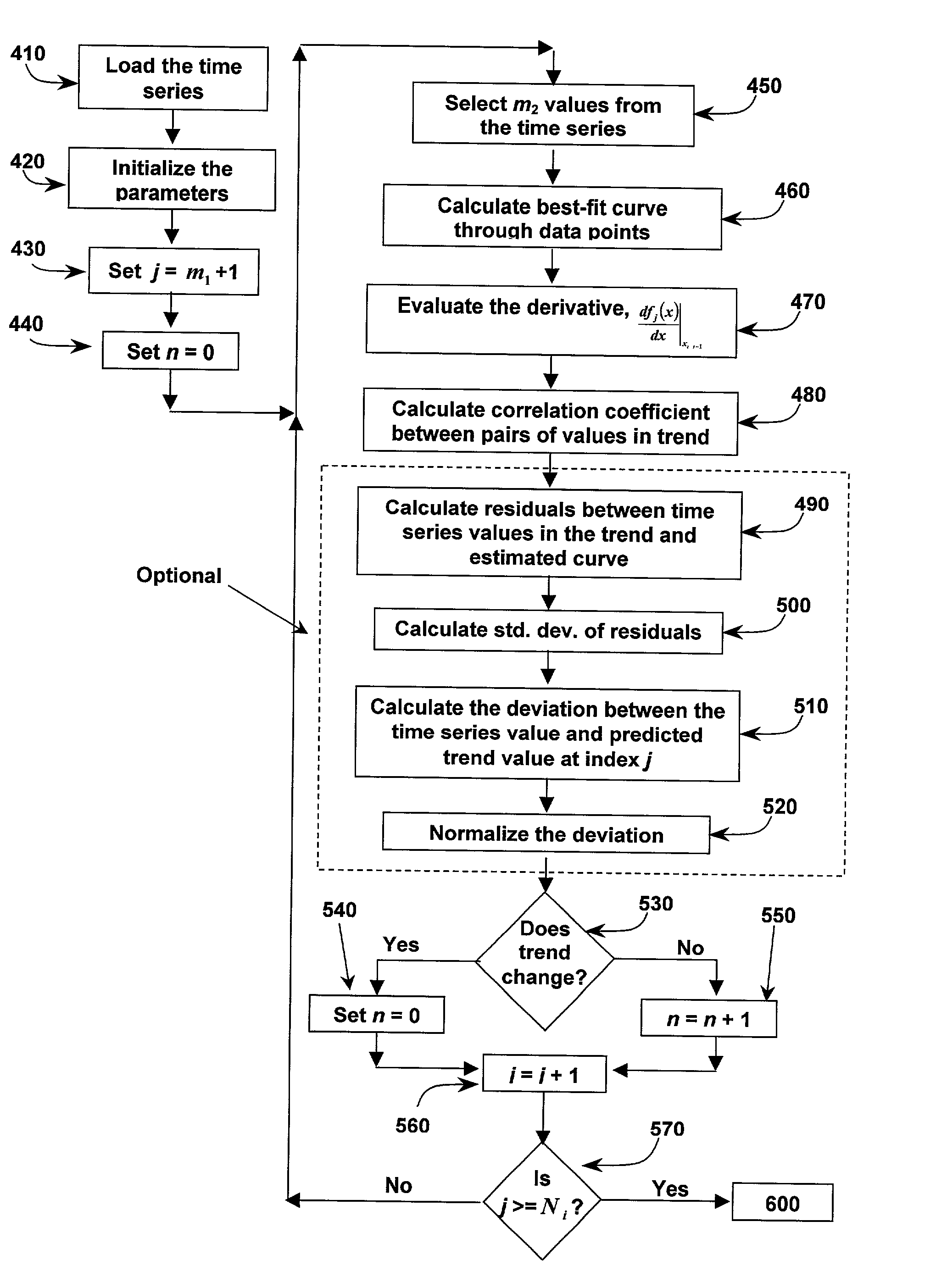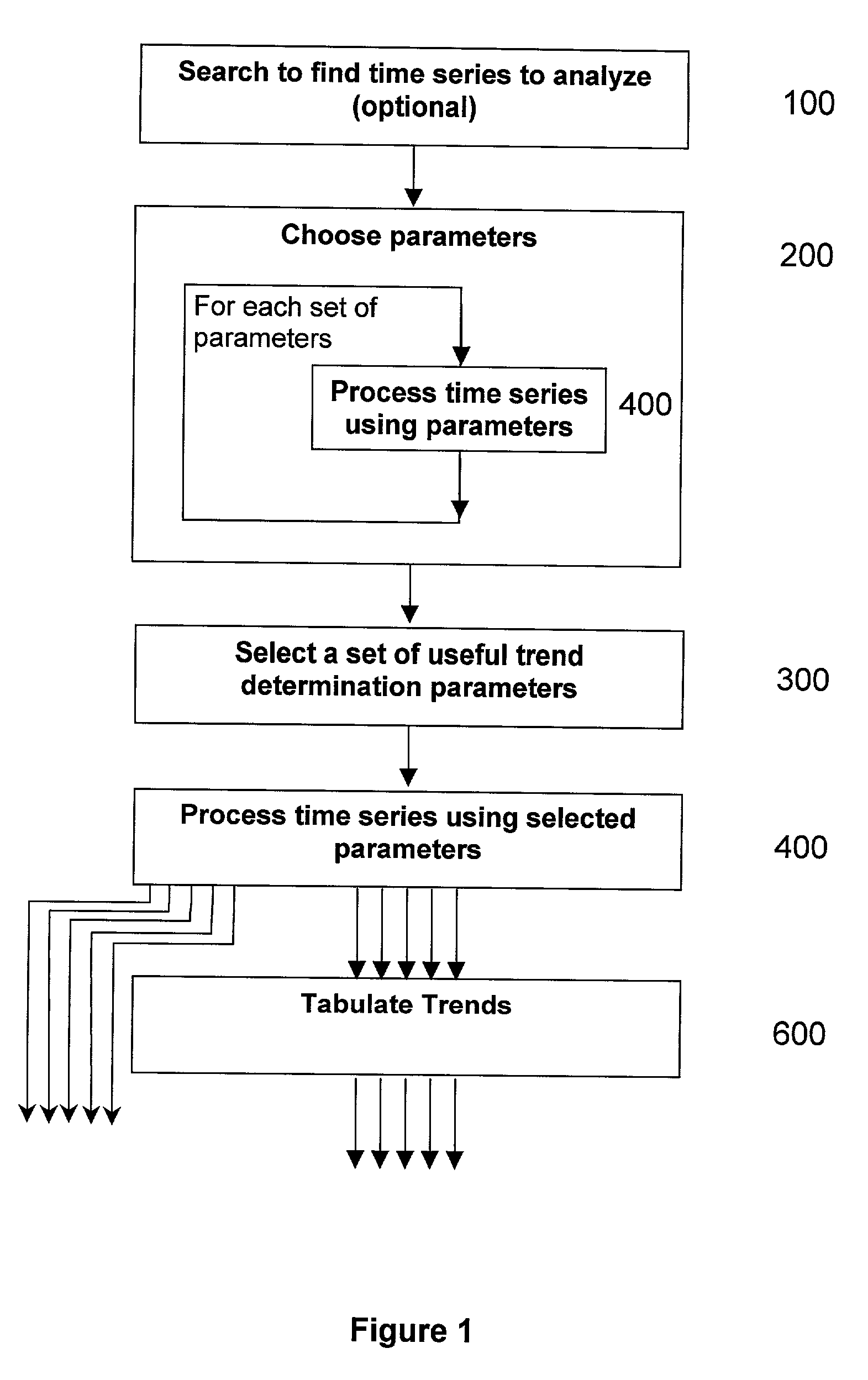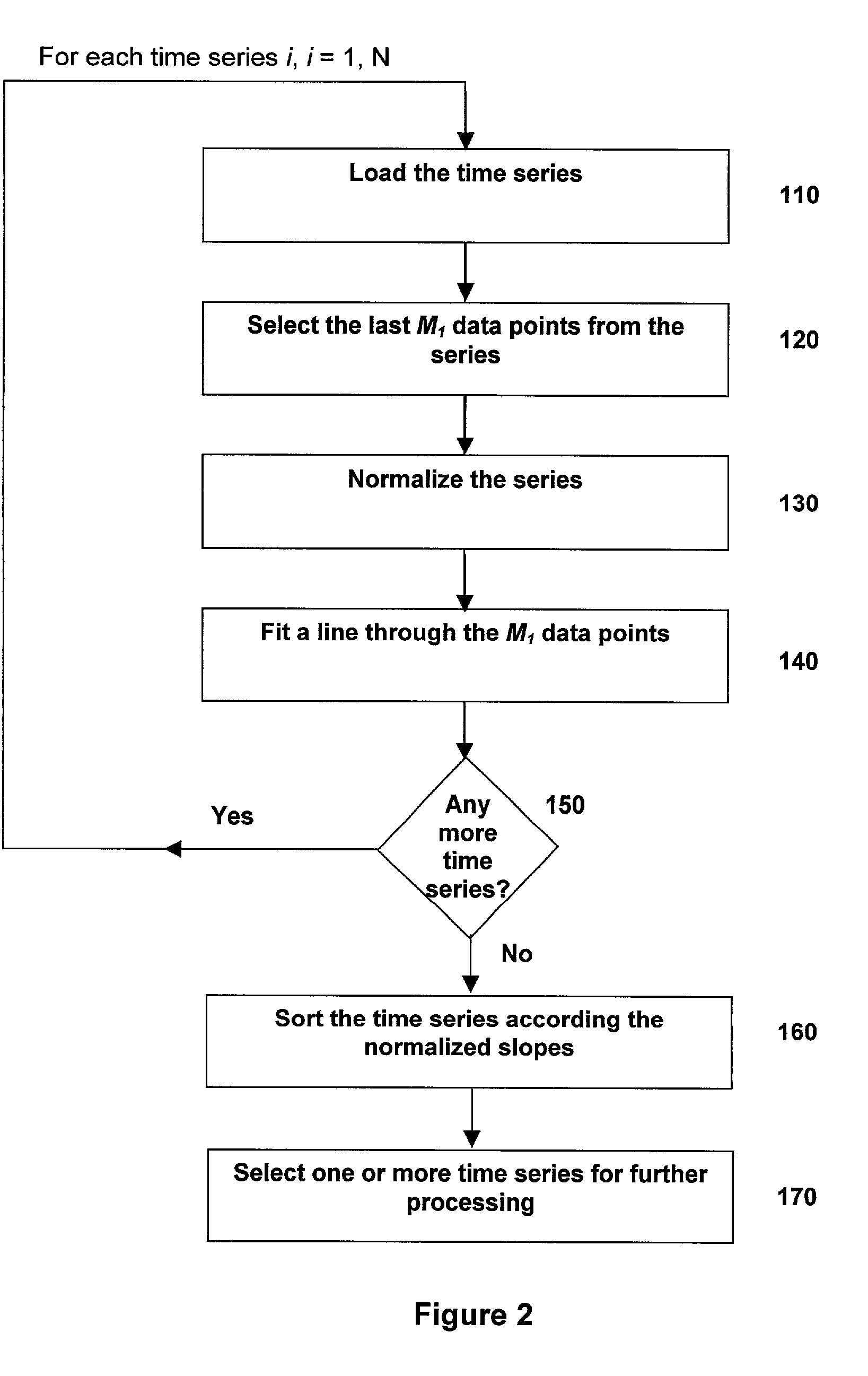Method and system to identify discrete trends in time series
a time series and trend detection technology, applied in the field of computation procedures for filtering noisy data, can solve problems such as data noise, trend algorithms described in this application do not perform well, and regression models created in one period of time may not be useful in the futur
- Summary
- Abstract
- Description
- Claims
- Application Information
AI Technical Summary
Problems solved by technology
Method used
Image
Examples
Embodiment Construction
[0033] Selecting a Time Series Data Set
[0034] In this embodiment, a plurality of time series data sets is analyzed in order to identify one or more data sets for further analysis. Referring now to FIG. 1, which is a flowchart of the major analysis steps, in step 100 each of the data sets is analyzed to determine if the set is strongly trending. For each set, the last M.sub.1 data elements are extracted from the time series, and a line is fit through the points using multiple regression. In this example, M.sub.1 is selected to be about 30 data points, or approximately 1.5 months of data. The normalized slopes and correlation coefficients are recorded. Upon such analysis of each of the data sets, a data set is selected for further analysis. When identifying financial instruments to trade, a time series that has a large increase or decrease in normalized slope with a correspondingly large absolute value of the correlation coefficient would be a likely candidate for subsequent processin...
PUM
 Login to View More
Login to View More Abstract
Description
Claims
Application Information
 Login to View More
Login to View More - R&D
- Intellectual Property
- Life Sciences
- Materials
- Tech Scout
- Unparalleled Data Quality
- Higher Quality Content
- 60% Fewer Hallucinations
Browse by: Latest US Patents, China's latest patents, Technical Efficacy Thesaurus, Application Domain, Technology Topic, Popular Technical Reports.
© 2025 PatSnap. All rights reserved.Legal|Privacy policy|Modern Slavery Act Transparency Statement|Sitemap|About US| Contact US: help@patsnap.com



